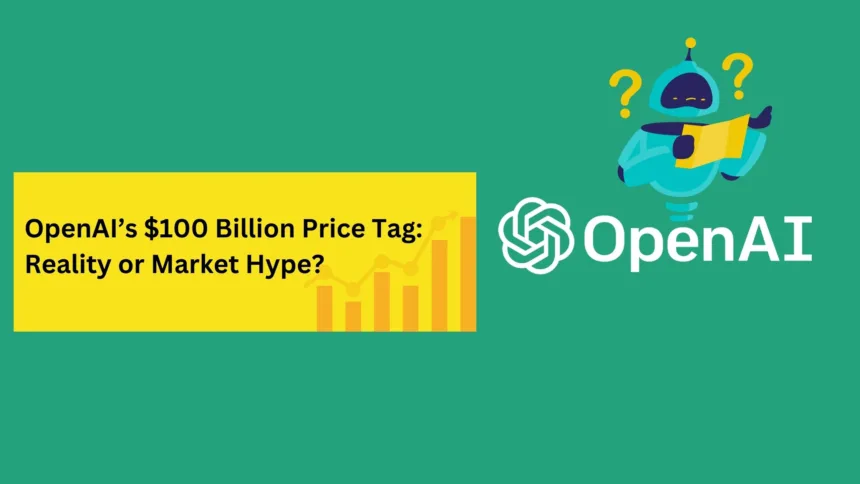OpenAI, a prominent name in artificial intelligence, has recently been valued at an astounding $100 billion. This valuation has sparked considerable debate in the tech and financial sectors, with many questioning whether the figure is justified. As the world increasingly relies on AI, the valuation reflects the potential and the risks associated with companies leading in this field. But is OpenAI truly worth this much, or do market hype and speculative investment inflate the figure?
Understanding OpenAI’s Market Position
OpenAI has established itself as a leader in the AI industry through its advanced research and products. The company’s innovations in natural language processing, particularly with the GPT series of models, have revolutionized various industries, from customer service to content creation. These tools have become integral to many businesses, enhancing productivity and reducing costs. As AI continues to evolve, OpenAI’s contributions have placed it at the forefront of technological advancement.
The valuation is largely driven by OpenAI’s strategic partnerships and its ability to monetize its technologies. Companies like Microsoft have invested billions into OpenAI, integrating its models into their products and services. Such partnerships not only bolster OpenAI’s financial standing but also validate its technology, further fueling its valuation. Additionally, the potential applications of AI across various sectors—from healthcare to finance—underscore the value investors see in OpenAI.
Doubts About the $100 Billion Valuation
However, the $100 billion valuation has its skeptics. Critics argue that the figure is speculative, driven more by the excitement surrounding AI than by tangible financial metrics. Unlike traditional tech giants, OpenAI is still in the early stages of monetizing its technologies. While the company has generated revenue through its API and enterprise solutions, it has yet to demonstrate sustained profitability on a scale that justifies such a high valuation.
Another point of concern is the competitive landscape. OpenAI is not the only player in the AI space; it faces stiff competition from tech giants like Google, Amazon, and emerging AI startups. These companies have vast resources and established customer bases, potentially limiting OpenAI’s market share. Moreover, the rapid pace of AI development means that today’s leader could easily be overtaken by a new entrant with a breakthrough innovation.
Potential Justifications for the Valuation
Despite these concerns, several factors could justify OpenAI’s $100 billion valuation. First, the AI market itself is expected to grow exponentially in the coming years. According to various reports, the global AI market could be worth trillions of dollars by 2030. As one of the leading AI research organizations, OpenAI is well-positioned to capture a significant portion of this market.
Second, OpenAI’s focus on ethical AI and safety measures adds value. As AI becomes more prevalent, concerns over its ethical use and potential misuse grow. OpenAI’s commitment to developing AI responsibly could make it a preferred partner for companies and governments looking to deploy AI technologies safely.
Also Read: OpenAI’s Project Strawberry: A New Era of AI Intelligence with Superior Reasoning Powers
Lastly, OpenAI‘s valuation could be seen as a reflection of its long-term potential rather than its current financials. Investors may be betting on the future success of OpenAI’s technologies, particularly as they become more integrated into everyday life. If OpenAI can maintain its leadership in AI innovation and continue to secure high-profile partnerships, the $100 billion valuation might prove to be an accurate, if not conservative, estimate of its worth.
Conclusion: Is OpenAI Worth $100 Billion?
The question of whether OpenAI is worth $100 billion is complex and depends on various factors, including market dynamics, competitive pressures, and the company’s ability to monetize its technologies. While there is significant potential in the AI sector, the current valuation may be more reflective of future expectations than present realities. Investors and analysts will need to closely monitor OpenAI’s progress to determine whether this valuation is sustainable or if it represents an overestimation fueled by the AI hype.









